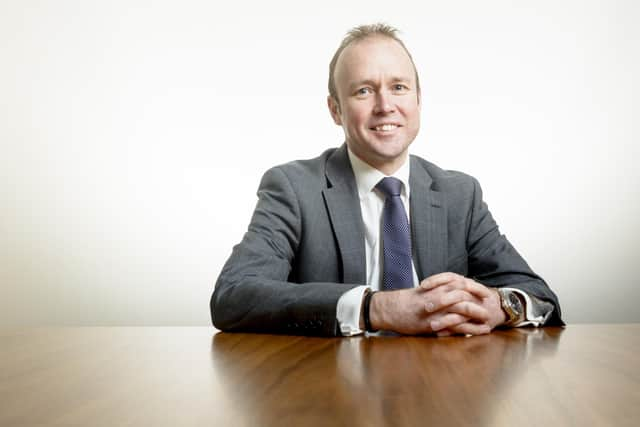Businesses need to prepare for life after inflation to hit the ground running - Steve Harris
Although high inflation persists, signs of it starting to ease has been welcome news to businesses, who have been navigating its complex challenges for many months.
The Bank of England says it expects inflation to keep on falling during 2024 and reach its 2 per cent target sometime in early 2025, though it seems likely that elevated interest rates will stick around for longer than was perhaps anticipated.
Advertisement
Hide AdAdvertisement
Hide AdWe’re far from being out of the woods, but we can now start to confidently imagine that the current downward trajectory will persist.


Still, from my own conversations with Yorkshire firms, I know that – while inflation is still dragging on demand – many now feel able to start planning for future growth opportunities.
Barring any major shocks, the softening environment should enable investment decisions to be made moving into the back end of this year and early next year.
Expanding their workforces and investing in their teams is one way for Yorkshire firms to achieve their growth ambitions, which will bring an appreciated boost to the local economy. And that is increasingly on the cards.
Advertisement
Hide AdAdvertisement
Hide AdThe latest Lloyds Bank Business Barometer, which surveys Yorkshire businesses every month to provide early signals about economic trends, found that three quarters, 75 per cent, of Yorkshire firms plan to maintain or increase staffing levels over the next year compared with last year. At the same time, it’s encouraging to see that 40 per cent plan to invest in their people over the next six months – the highest proportion in any English region.
But it’s perhaps disappointing that only 19 per cent of Yorkshire firms said they plan to invest in sustainability this year, which should be an incredibly important consideration for every kind of business.
Our region has established itself as a sustainability hub and we should be proud of that, but at the same time, we can’t be complacent. Businesses need to have a clear plan around how they are going to transition to Net Zero and, where appropriate, encourage their suppliers and customers to do the same. I’d encourage all firms to include Net Zero in all their investment strategies; after all, it’s not just an obligation, it’s an opportunity too.
However firms plan to invest for the future, in the short term it’s also vital that they keep a close eye on their working capital and ensure they have sufficient funding or liquidity to support their everyday operations as they look to invest for the future. This can include traditional overdrafts but additional working capital can be unlocked by considering products such as asset or invoice finance.
Advertisement
Hide AdAdvertisement
Hide AdWhether it’s training your people to develop the skills you need to grow, entering new markets, evolving your offer or decarbonising your operations, the Lloyds Bank team in Yorkshire and Humber are here to support your investment plans.
The spectre of sky-high inflation will hopefully soon be behind us and those firms with the foresight to get fit for the future will be able to hit the ground running.
Steve Harris is regional director for the North and Scotland at Lloyds Bank.